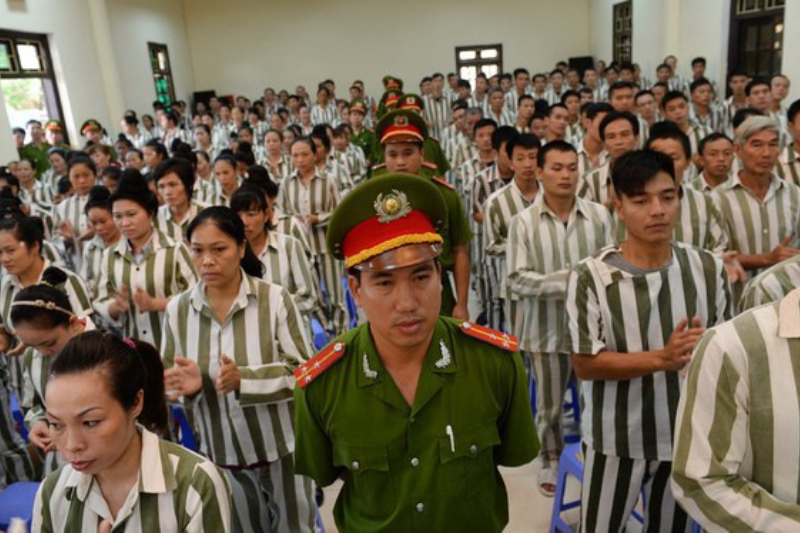

unveiling vietnam's hidden reality the plight of political prisoners
Vietnam is well known for its beautiful scenery, mouthwatering cuisine, and turbulent past. But behind this alluring front, the nation hides a sad reality: political tyranny and the illegal detention of many people who dare to express their opinions openly. Vietnam’s shadowy secret of holding more than 150 political prisoners is still kept from the world’s eyes despite the country being a developing economic market and geopolitical participant. For democratic governments to pursue stronger ties with the Southeast Asian nation, they must confront this issue, as this essay illuminates the experiences of some of these detainees.
Chau Van Kham, a pro-democracy activist and retired Australian baker, was recently released after more than four years of arbitrary confinement. Chau was imprisoned due to his membership in and actions with the opposition political group Viet Tan and his conviction on “terrorism”-related charges. His family now has some optimism because of the Australian government’s painstaking efforts to gain his release, but it also highlights how little help there is for those who don’t have passports from other countries.
Tragically, many other advocates for human rights, environmental protection, and journalism must deal with the complex reality of imprisonment without the security of foreign citizenship. For their nonviolent action, people like the land activist Truong Van Dung and the proponent of democracy and a multiparty system Tran Huynh Duy Thuc have received lengthy prison sentences. As an example of Vietnam’s intolerance of free speech and criticism, journalist Pham Doan Trang was sentenced to nine years for writing about several sensitive topics.
Vietnamese environmental movement has also come under scrutiny, which has resulted in the detention of well-known activists like Nguy Thi Khanh and Hoang Thi Minh Hong. Despite receiving acclaim for their work on a global scale, they were falsely accused of tax evasion, revealing the government’s contempt for environmental advocates.
Democratic countries should not ignore the situation of political prisoners even when they actively want stronger economic connections with Vietnam and regard it as a viable alternative to China. It is vital to strike a balance between financial concerns and human rights issues, and turning a blind eye to Vietnam’s human rights crimes weakens the values of democratic countries.
Stories from political detainees in Vietnam show a troubling tendency to suppress dissent and free speech. Vietnam may market itself as a cutting-edge and trustworthy trading partner, but democratic governments must adopt a principled attitude. Ignoring the situation of political prisoners gives the message that authoritarian methods are acceptable, undermining the principles that these governments are based on. The world shouldn’t stand by while Vietnam continues to repress free speech and criticism, as Pham Doan Trang bravely pointed out. To create a more just and equal world, it is now necessary for democratic nations to stand out and fight for the rights and liberties of the Vietnamese people.
During the Babcock Fife visit, Chancellor Rachel Reeves raised UK export finance program funds by £2 billion. The new funding…
In a major decision, Tamil Nadu Finance Minister Thangam Thenarasu presented a new scheme in the state’s 2025-26 budget through…
Tesla started operating 224 driver trainers with 104 vehicles under its autonomous driving test permit in December in California. In…
Judge William Alsup finds federal government should restore positions to all probationary workers whose employment ended unlawfully. On Thursday a…
The UK government has brought in new regulations for employing staff within the care industry. From April 9, 2025 care…
Afghan migrants deported from the United States to Panama now face an uncertain future. Many of these deportees feel stranded…
This website uses cookies.
Read More